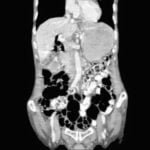2 mins read
Top Health tips for Post Menopause
Top Health Tips for Post-Menopause
- Maintain a Balanced Diet
After menopause, your risk of osteoporosis and cardiovascular disease increases. A well-balanced diet rich in calcium, vitamin D, lean protein, whole grains, fruits, and vegetables can help protect your bones and heart. Limit processed foods, refined sugars, and saturated fats. Include foods like leafy greens, dairy or fortified alternatives, nuts, seeds, and oily fish. - Stay Physically Active
Regular exercise supports cardiovascular health, helps maintain a healthy weight, strengthens bones, and improves mood. Aim for a combination of:- Weight-bearing exercises (e.g. walking, dancing) for bone strength
- Strength training (e.g. resistance bands, weights) for muscle mass
- Flexibility and balance exercises (e.g. yoga, tai chi) to prevent falls
- Prioritise Bone Health
Postmenopausal women are at greater risk of bone thinning (osteopenia or osteoporosis). Ensure an adequate intake of calcium (1,200 mg/day) and vitamin D (800–1,000 IU/day), either through diet or supplements if necessary. Bone density scans may be recommended based on risk factors. - Monitor Heart Health
Menopause is associated with increased cardiovascular risk. Keep your blood pressure, cholesterol, and blood glucose within normal limits. Avoid smoking, limit alcohol, and maintain a healthy weight. Regular check-ups and lifestyle management are crucial. - Manage Weight Mindfully
Hormonal changes often lead to fat redistribution and weight gain. Adopting a diet high in fibre and low in processed foods, combined with regular physical activity, helps maintain a healthy weight and reduces the risk of type 2 diabetes and heart disease. - Attend Regular Health Screenings
Continue with cervical smears, mammograms, and bowel cancer screening as advised. Screenings help detect issues early when they are more easily treated. Discuss with your GP whether bone scans or other assessments are appropriate. - Look After Mental and Emotional Wellbeing
Mood swings, anxiety, and low mood can persist after menopause. Maintain social connections, stay active, consider mindfulness or therapy, and speak with your GP if symptoms affect your quality of life. - Address Urogenital Changes
Vaginal dryness, discomfort during intercourse, or urinary changes are common. These symptoms can often be managed effectively with vaginal moisturisers, lubricants, or local oestrogen therapy—speak with your GP for advice. - Sleep Hygiene and Fatigue Management
Good sleep supports immune function, mental health, and hormone balance. Avoid caffeine in the afternoon, maintain a consistent bedtime routine, reduce screen use before bed, and create a restful sleep environment. - Consider Hormone Replacement Therapy (HRT)
If menopausal symptoms persist or affect your quality of life, HRT may be appropriate. It can also help reduce bone loss. Decisions about HRT should be individualised based on your medical history and preferences—discuss this with your GP.

Join the mailing list!
Get the latest articles delivered right to your inbox!

